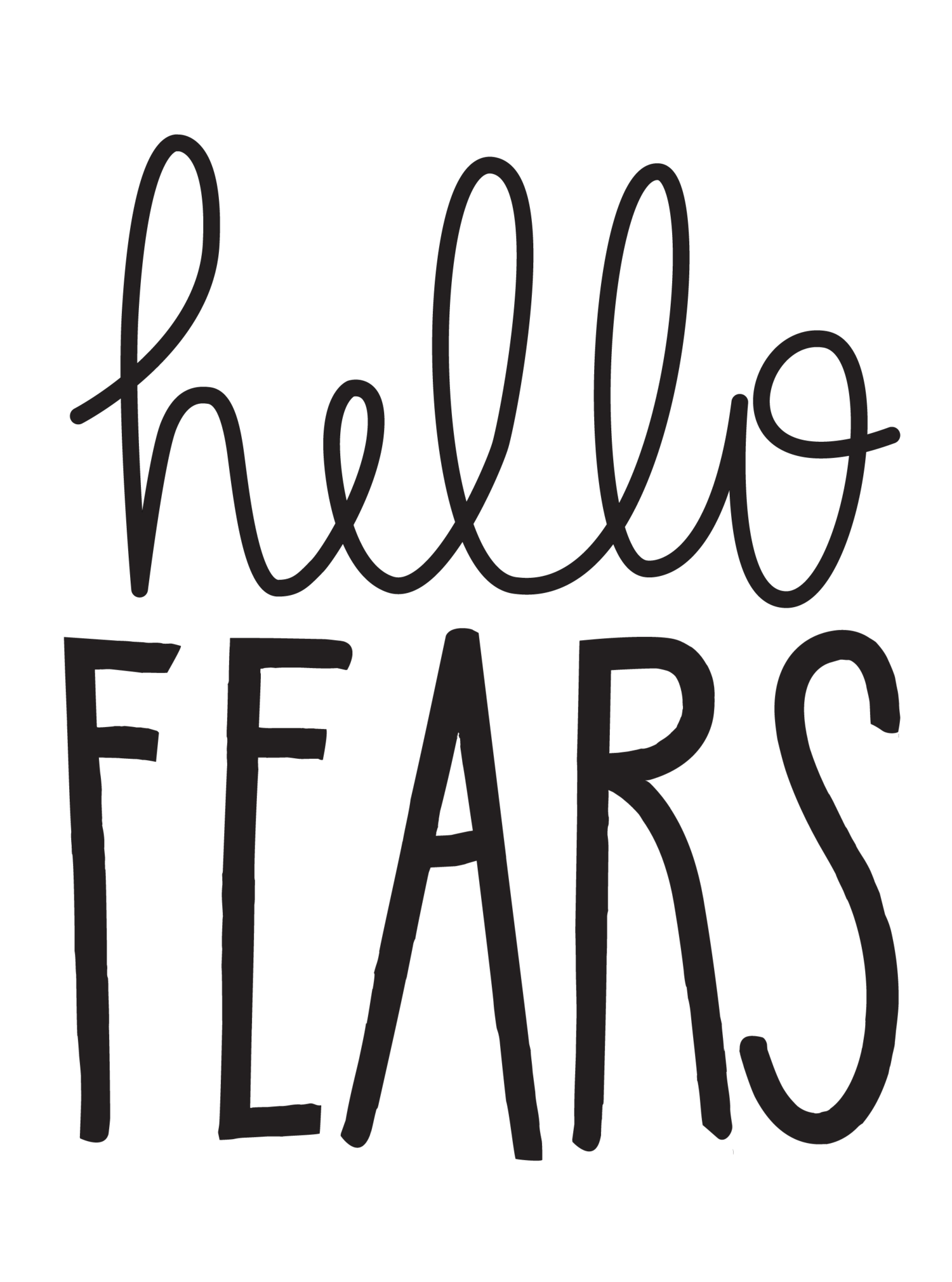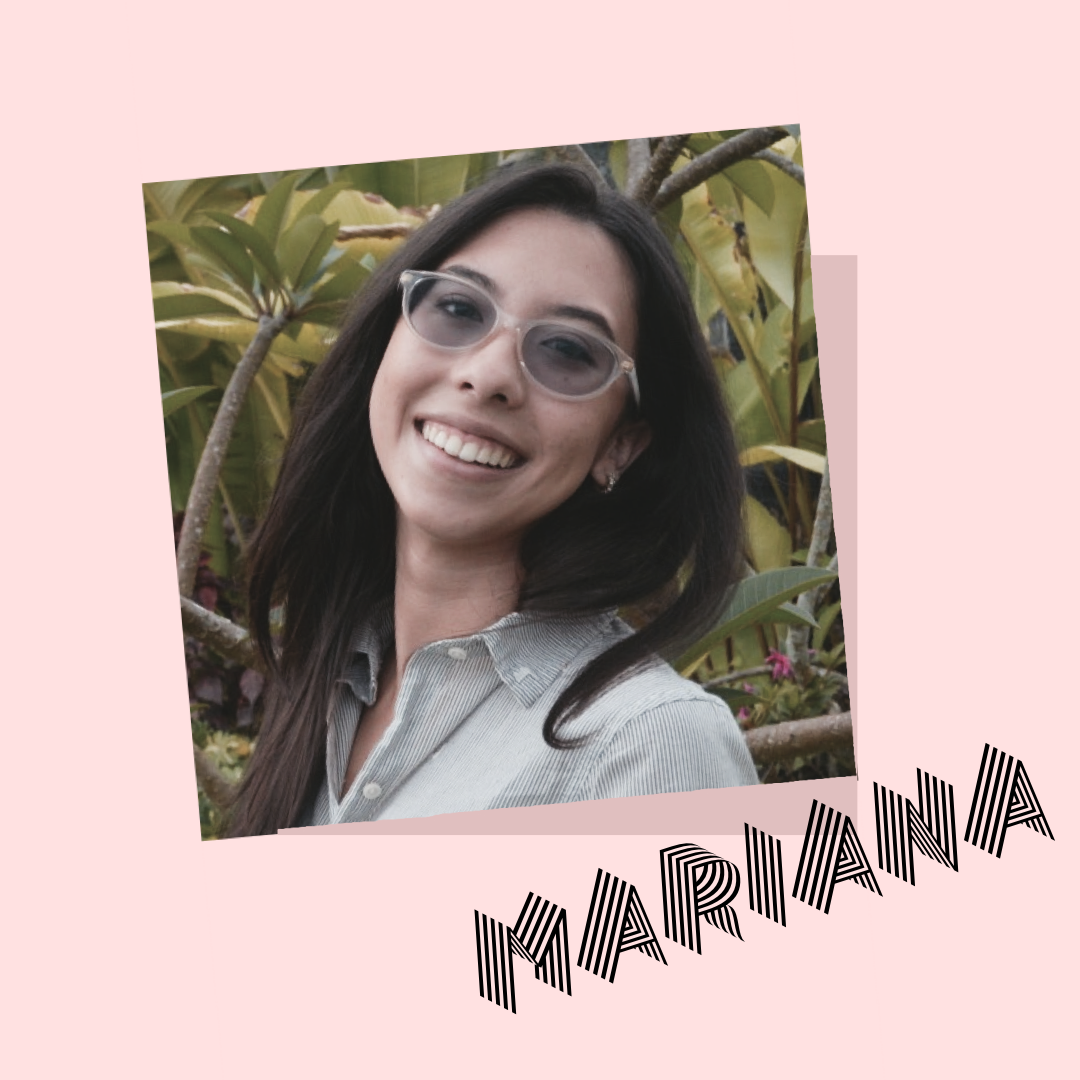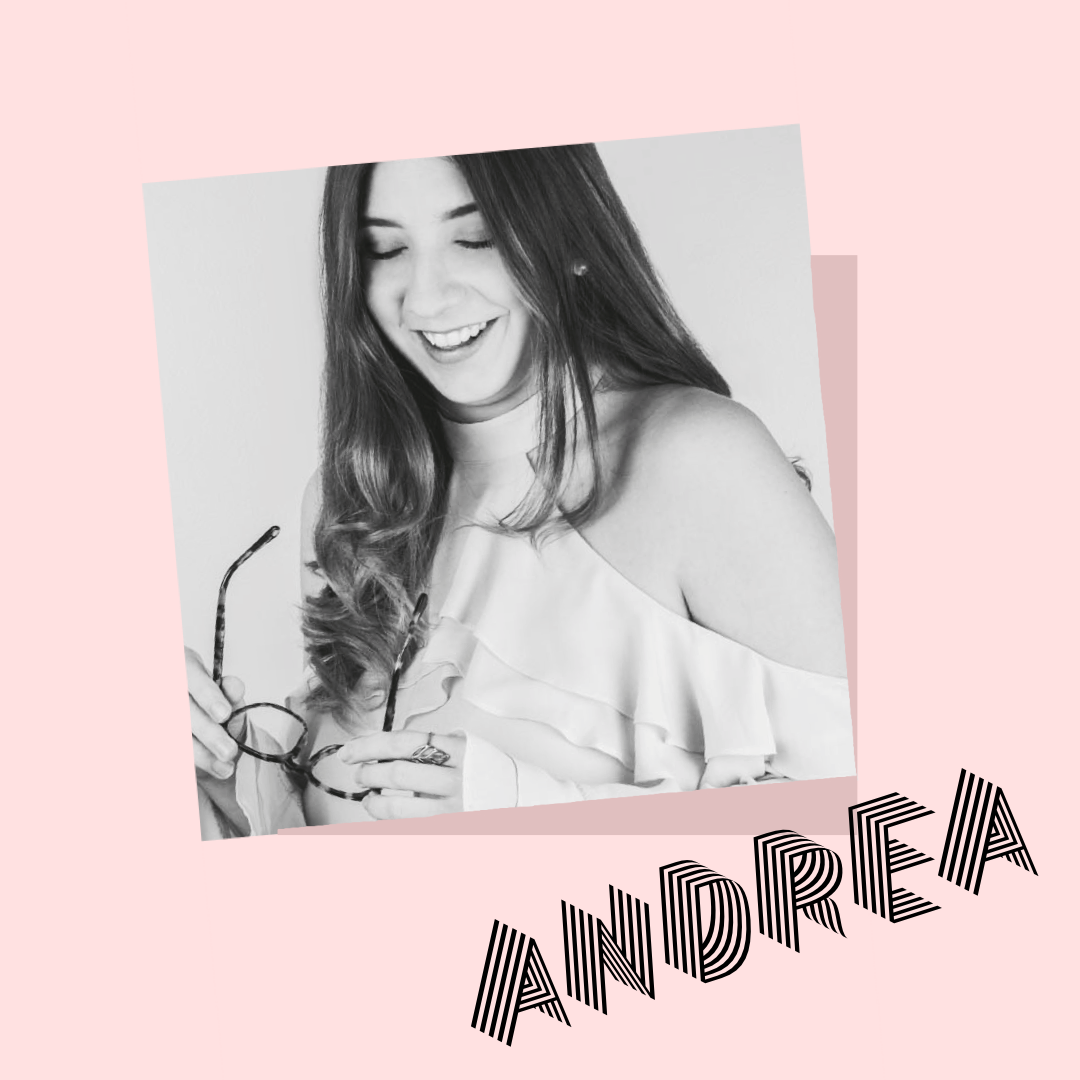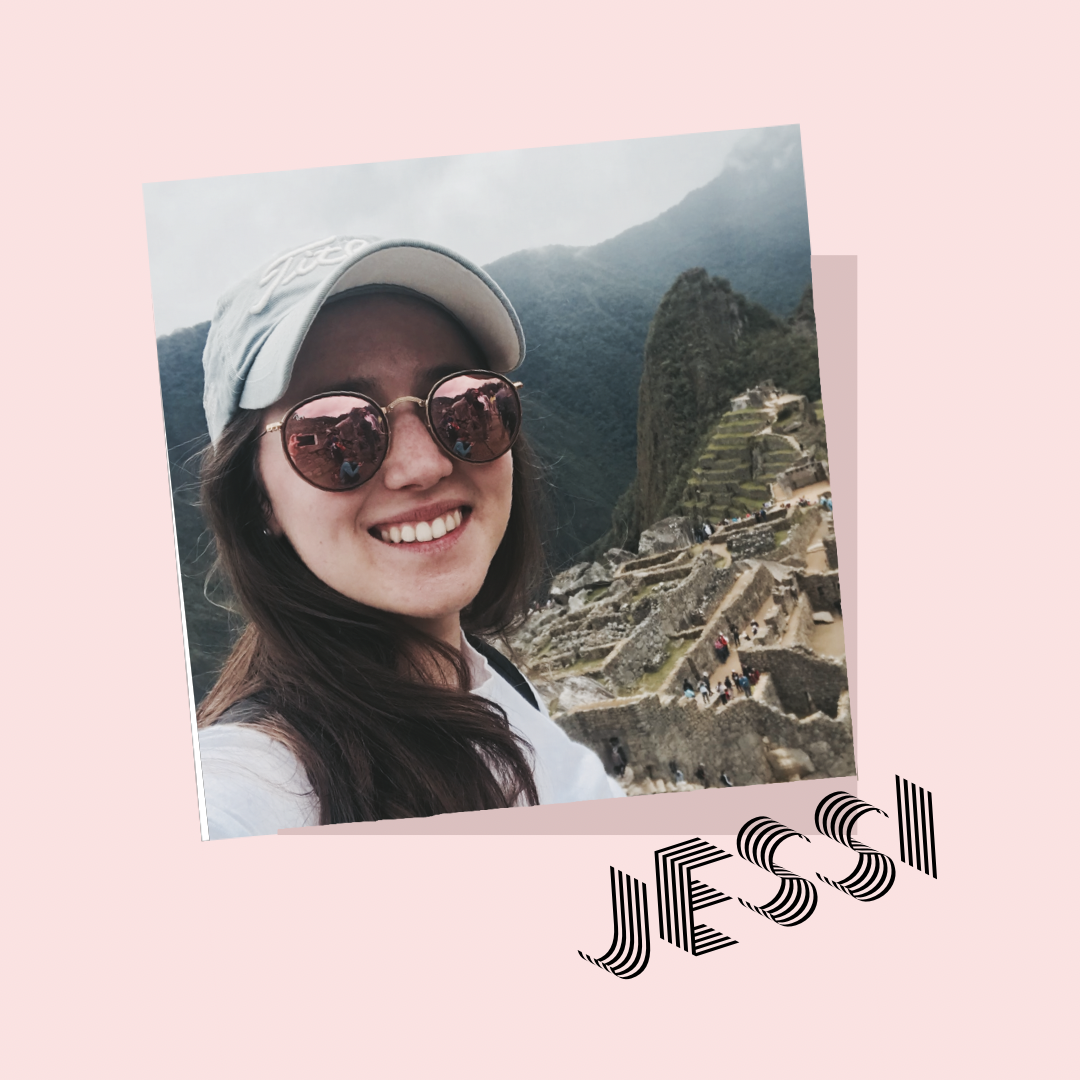Courage Is Using Your Skills To Help People In Need
| Mariana Olivares - (Spanish Version Below)
Fear is one of the many emotions I feel here in Caracas. My name is Mariana and I am from Venezuela, a country that gave me and my family the opportunity to grow and work towards a good life.
I am constantly afraid of being robbed, of leaving my house after dawn, of being kidnapped. I am afraid of the police, of using my phone in public places and falling in love with someone who is going to leave the country to find a better life somewhere else. That fear has stopped me many times, but other times it makes me think and analyze the situation. It makes me survive a city that becomes more and more dangerous each day.
I am studying psychology, and I love learning and researching the science behind people’s behavior. My work, even before I started to study, was focused on people and communities and how helping has a bigger purpose than “just helping others”. As soon as my university gave me an opportunity to put into practice what I learned in the classrooms I said Heck Yeah! It was my calling.
There was only one problem with the project: it was in Petare, one of the most dangerous neighborhoods in the city.
I have always worked in either rural communities or indigenous ones, but never in barrios in the city. They are so different from what I know. The middle class in Venezuela is very aware of what happens inside these dangerous communities or “en el Cerro” -up in the mountains.
For me, this was not only something I had to do to feed my family but a way to help people who opted for violence to survive, especially in the current economic situation of Venezuela.
My parents always supported me in the other projects I have done in remote places of the country, yet they were very afraid of me getting into one of the most dangerous barrios in the world. I considered leaving and finding something more comfortable to do many times, but this project had everything I wanted and needed when it came to research and formation in my field. No one believed I was able to get myself into that situation every single week, not even my classmates!
I decided to give it a chance even if I was afraid. Along with two other friends we decided to do a project on menstruation and hygiene for girls and adolescents at the “Fe y Alegria” School in Petare.
As the feminist I was raised to be, I decided this was the best topic to work within a population that was not exposed to the topic beforehand. These girls have a hard time finding pads or tampons at a reasonable price so their menstrual hygiene was close to being non-existent.
One of the most interesting things we discovered is that the girls find the pads and pay very high prices for them, but they believe menstruation is bad blood your body is trying to filter out. This notion became a key factor in our research, and we are trying to teach the real reason behind menstruation and its relationship with fertility.
This new information about a topic that has been taboo for so long was accepted by many in the community, something that was very surprising for us. Both girls and boys have worked together to talk about the proper preparation for menstruation and the changes women face when they start developing.
I am still afraid to go to Petare, and I can say that I wear a costume whenever I go to blend in. I wear an old cotton t-shirt with broken jeans, most likely they have stains that I refuse to take out. If I wear earrings, they are plastic ones. I never wear makeup, and I wear sneakers that are old and have no visible brand. I don’t even bring my phone with me, instead, I use my grandpa’s flip phone. No one stares at us, but we try to not talk in public so people don’t pick up the slang and intonation used by those in the middle/upper class.
I am aware that the place I go to has many social disadvantages: it has an incredible amount of trash on the street that makes it smell terrible and there is a lot of violence. Yet, I can do something every week to prepare myself before I come back and work in these places that need the creation of these programs to inform and educate those who don’t know as much. This is a key factor to help our country develop into what we want it to be. I am incredibly happy to be able to talk to these kids about menstruation and its hygiene.
It takes a lot of courage from everyone involved to keep this project afloat. From the teachers and faculty that work in the institution to all the educational entities in our country, we all work together towards the same goal. We all face our fears each day trying to make our society a better one. And the students, the ones that have the courage to show up to class every day, learn that there is more than the violence they see in the streets. They are becoming better citizens, better entrepreneurs, and better workers. These are true examples of resilience and bravery.
If I learned something during this project it is that you have to experience things before judging them. My fear is real and valid; after all, it’s linked to violence and safety issues. But I can’t find a reason to keep me from doing what I like doing: researching communities and being part of the transformations they go through.
Spanish Version
Yo soy Mariana, y soy venezolana. Cada vez más, mi país y su gente me define y me llama. Con la ola de gente que ha emigrado, amigos familiares y seres queridos, mis raíces crecen en la tierra que me vio nacer y en el lugar a la que todos mis ancestros por más de tres generaciones trabajaron para cultivar y hacer un lugar próspero y lleno de vida.
Miedo es solo una de las miles de emociones que siento en mi Caracas amada, miedo a que me roben, miedo a salir de noche, miedo a que me secuestren, miedo a la policía, miedo a sacar mi celular en lugares públicos, miedos a enamorarme de alguien que se vaya a ir… Ese miedo miles de veces me ha paralizado, pero en ocasiones, me hace pensar, analizar la situación, me hace sobrevivir a una ciudad en la que peligros hay en cada esquina y con cada moto que pasa.
Pero si solo fuese miedo, no pudiese escribir, el miedo en mi se une con la esperanza de que mis hijos algun dia vivan en este país, en la alegría de tener a mi familia cerca para disfrutar de nuestras costumbres y de nuestro amor, con la determinación de hacer un cambio y la frustración de que ese cambio no sea como yo me lo esperaba.
Tantas emociones, que muchas veces solo el imponente Ávila, la montaña magistral de nuestra ciudad capital que nos arropa y siempre cambiante nos da una perspectiva de ideal y de perseverancia, sólo esa montaña me da ese aliento extra que derrumba el miedo y me lleva a seguir construyendo por mi país y nuestra gente.
Yo estudio psicologia, y amo lo que estudio y lo que puedo hacer e investigar a través de las ciencias del comportamiento. Mi trabajo social, incluso antes de empezar mi carrera, siempre fue centrado en las personas y en las comunidades, no necesariamente en ayudar por ayudar sino en ayudar por crecer, todos. Así que cuando tuve la oportunidad de trabajar con un proyecto social en la universidad en comunidades, se me iluminaron los ojos y me anote.
Claro, había un “obstáculo”... era en Petare.
Mi trabajo había sido en comunidades rurales e indígenas, nunca en barrios populares en la ciudad, que se mueven distinto a otras comunidades, especialmente con la imagen que todos los caraqueños de clase media nos hacemos de lo que es un barrio y de lo que sucede “en el cerro”.
Para mi, asi como era el hogar de muchos trabajadores y trabajadoras de la ciudad que hacían un gran esfuerzo para darle de comer a su familia, también era el hogar de personas que optan por la violencia (como el secuestro y el robo a mano armada) para sobrevivir, especialmente en la situación económica actual.
Mis padres, que anteriormente me habían apoyado a aventurarme en lugares remotos del país, con miedo me pedían optar por otras opciones que no involucran adentrarme en uno de los barrios más grandes y peligrosos del mundo, y aunque lo considere mil veces, el proyecto tenía todo lo que estaba buscando en materia de investigacion y formacion. Ni siquiera mis compañeras creían que fuese capaz de adentrarme semanalmente en ese lugar.
Me decidí con algo de miedo, pero con mucho entusiasmo, eso siempre ha sido el punto de quiebre que me da ánimos para seguir un proyecto. Con dos amigas, decidimos trabajar la menstruación e higiene menstrual en niñas y adolescentes del colegio Fe y Alegría, en una comunidad de Petare.
Como feminista, creyente en la igualdad y equidad de género, me pareció un tema interesante de trabajar en esa población, comenzando con una idea de que quizás ellas se les hacía muy difícil encontrar toallas sanitarias y por ende mantener una buena higiene menstrual, quizás contando con poco apoyo de padres y hermanos.
Lo que hemos encontrado hasta ahora, es que aunque casi todas logran encontrar toallas sanitarias (muchas veces a precios muy altos), es la noción de que la menstruación es “sangre mala” y “sangre podrida, que se filtra y sale” lo que se ha convertido en una de los puntos centrales de nuestra investigación. Creando conciencia sobre el ciclo menstrual, su verdadera razón y su relación con la fertilidad.
La reacción por parte de la comunidad, sorpresivamente para mí, ha sido de suma apertura ante un tema que para muchos aún es tabú. Tantos niñas como niños han colaborado hablando sobre su percepción de la menstruación y sobre lo que esto implica al cambio en el desarrollo de la mujer y el sexo femenino.
Definitivamente en algunos momentos tengo miedo, a pesar de que prácticamente me disfrazo para ir. Me llevo una camisa de algodón, vieja pero no tan vieja, unos blue jean rotos y manchados, sin zarcillos o con unos de plástico, sin maquillaje y con unos zapatos viejos y que no tengan una marca visible. Mi celular Iphone lo dejo en mi casa, y en cambio me llevo el de mi abuelo, que prácticamente es un flip phone y un bolso de deporte que no tiene ninguna marca visible tampoco. Nadie nos mira muy extraño, aunque tratamos de no hablar mientras caminamos por las calles del barrio, ya que quizás se pueda distinguir el “mandibuleo” común de personas clase media / alta.
La verdad, cada vez tengo menos miedo al ir, pero aun mantengo la precaución. Se que al lugar al que asisto tiene muchas desventajas sociales, increíble cantidad de basura en las calles (y terrible olor), y mucha violencia, pero tomando las precauciones necesarias, se puede acceder y trabajar en estos lugares en los que la creación de programas que brinden información y que estudien su forma de ver el mundo y nuestro país, es sumamente importante para el desarrollo de programas sociales y educativos fundamentados en las necesidades percibidas por la comunidad y en los valores y fortalezas que las comunidades ya tienen.
Me llena de felicidad poder construir con esos niños y niñas una investigación sobre la menstruación y la higiene menstrual, en la que todas las partes crecemos en conocimientos e independencia.
Con mucha valentía, todos los profesores que trabajan en esa institución y en todas las unidades educativas en nuestro país, incluso las privadas, vencen el miedo y trabajan por la mejora de nuestra sociedad y de nuestro planeta. Y los estudiantes, que deciden asistir a las escuelas, conociendo así un mundo diferente al del crimen organizado y la política del dia a dia, para formarse como ciudadanos, emprendedores y trabajadores, también son gran ejemplo de resiliencia y valentía.
Si algo me queda de esta experiencia, es vivir antes de juzgar. Si, se que mi miedo está fundamentado en una violencia real, pero eso me sirve para ser precavida sin alejarme de mi meta de investigar en comunidades y vivenciar transformaciones sociales.




